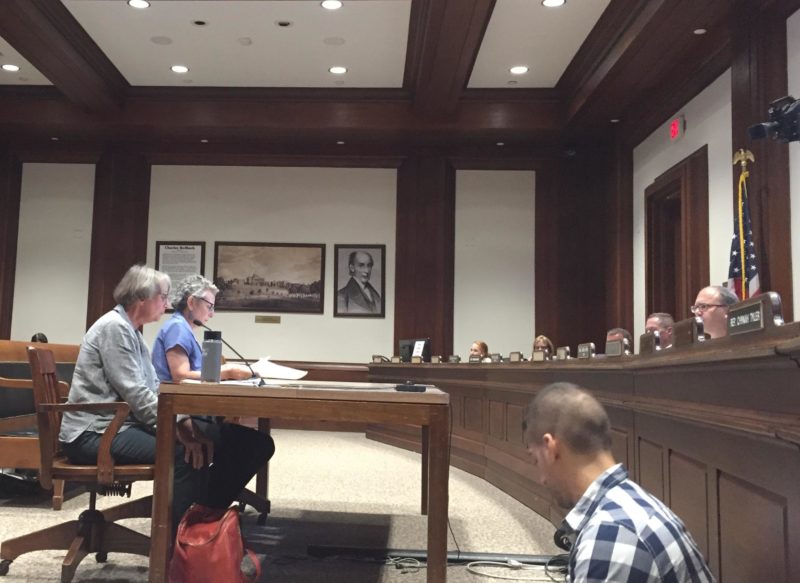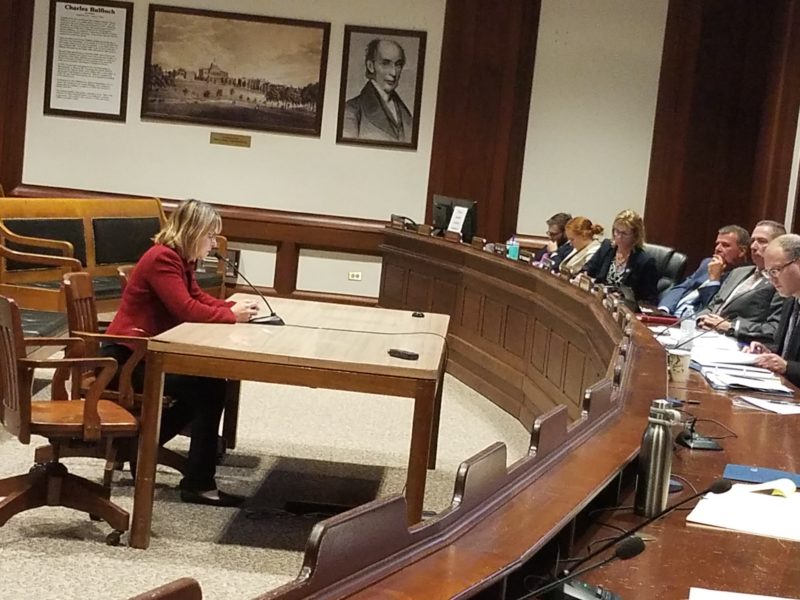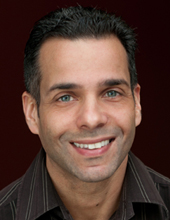Lisa Guisbond, Executive Director, Citizens for Public Schools, in favor of H.593, S.314 and S.298; against H.3853 and H.496:

Click here to watch video.
CPS members, including parents, students and educators across Mass., advocate for adequate and equitable school funding and for local democratic oversight of public schools.
Today, I speak in favor of bills that would improve charter school accountability, transparency, and local democratic control, H.593 and S.314. I speak in favor of S.298, an act relative to the financial impact of charter schools. And I strongly oppose H.3853, An Act relative to the operation of charter schools in New Bedford. I also oppose H.496.
In 2016, MA voters spoke loudly — defeating a ballot question to lift the cap on charter schools, 62% to 38%. They opposed lifting the cap because charters were already diverting hundreds of millions of dollars away from their district schools, which educate 96% of our students.
Although Question 2 supporters claimed that public schools were not being harmed, anyone connected with a real public school could see shrinking resources and cuts to art, music, science, transportation, and librarians.
It’s impossible to create a new, publicly funded, privately managed school system without taking resources away from existing schools.
Voters spoke: They want public schools to have local democratic accountability. Charter schools, whose oversight is by unelected private boards, do not.
According to DESE, Massachusetts school districts will lose $623 million to charters in FY2020, and that’s after state reimbursement.
The amount of funding that will go to a new or expanded charter is not decided by any elected official. Instead, these decisions are made by the appointed Board of Elementary and Secondary Education, which absolves itself of responsibility to consider the impact on other children in a community.
The charter conflict in New Bedford illustrates several reasons why charter expansion threatens the well being of our students and communities.
As my colleague Christine Langhoff has testified/will testify, New Bedford’s charter school has far fewer certified teachers, significantly lower teacher retention, and a higher student suspension rate than the New Bedford Public schools. These are all indicators of serious problems in a school climate and culture. [3 minutes to here]
As the foundation of our democracy, public education must have democratic oversight. Every community must have a right to determine how to best meet the needs of their students. Yet New Bedford residents have had no say in a proposal that would siphon $15 million from public-school classrooms in their community.
I urge you to report out favorably H.593, S.314 and S.298; and to report out H.3853 and H.496 unfavorably.
————————————————————
Christine Langhoff, Boston, CPS Member, in opposition to H.3853.
Click here to watch video.
My name is Christine Langhoff, I’m a Dorchester resident and a Boston Public School teacher, retired after 36 years in the classroom. I’m here to testify against H.3853, An Act relative to the operation of charter schools in the city of New Bedford.
Commonly, when comparing charter schools to public schools, the focus is on MCAS results. Educators know test scores are only one measure of a school’s performance; we must look past them to other critical factors.
It’s possible that DESE would label Alma del Mar underperforming were it an open enrollment public school. Its teachers and administrators lack preparation and experience with students from low-income communities. It has high teacher turnover and student suspension rates.
Massachusetts – appropriately – has high standards for professional certification, including earning a master’s degree within five years. In 2018, more than a third of Alma del Mar’s staff was uncertified, compared with only 6% of New Bedford’s. In 2019, nearly half Alma del Mar’s teachers lack certification, compared to New Bedford’s 5%.
Energetic young teachers are a positive, but they often lack the experience needed to support a high-needs population. 66% of Alma del Mar’s teachers are under 32; in New Bedford that number is 25%; across the state it is 21%. Novice teachers require mentors to help them navigate the demands of teaching. With so few experienced staff, mentors are scarce, making it difficult for beginning teachers to improve.
In fact, while Alma del Mar loses nearly half its teachers each year; New Bedford retains more than 80%. Churn takes a toll on children, especially if there is instability in the home, due to factors present in New Bedford – poverty, an immigrant community, high-cost housing, low-wage jobs. Schools offer security when things at home are difficult, providing stable adult relationships where children go each day. When teachers remain in schools over time, they get to know the families they serve and become more effective advocates.
Alma del Mar’s suspension rate of 15% is more than double New Bedford’s 6% and more than triple the state average of 4.7%. Suspensions lead to poor outcomes, particularly out-of-school suspensions; researchers have linked suspension to later incarceration. Parents are also harmed when their children are suspended, and may have to choose between losing pay or leaving suspended students home unsupervised. Inexperienced and uncredentialed teachers lacking coursework in child development likely contribute to high suspension rates.
New Bedford has a high percentage of students in poverty, students with disabilities and English learners. These students deserve fully credentialed teachers who have developed skills for addressing diverse needs.
The premise of charters has been that parents must have a choice about schooling. The privatization of a neighborhood school in New Bedford would remove the choice of a traditional public school for the parents who live within this catchment area.
We cannot allow test scores as the sole criteria to remove the right to a public school from families who happen to live near Alma del Mar.
————————————————————
Carol Savage, Winchester, CPS Board Member, in favor of S.314.

Thank you chairpersons and committee members. I am Carol Savage from Winchester and I’m here to share a parent and citizen perspective as a board member of Citizens for Public schools.
I grew up valuing education. My mother was the child of immigrants; my father traced back ten highly educated generations. One of the ties that bound them was the belief in education and I inherited that belief in its importance for the individual, society and our democracy. I attended public schools in Pennsylvania and I sent all three of my children through the public schools in Massachusetts, where I first became an advocate for public education at the local, and then state level.
I also have a Masters in Public & Private management, so I understand the importance of effective management and I also understand the differences between public and private sector purposes, which has informed my concerns about the charter school movement.
Like many public education advocates, I came to advocacy at the local level when I first moved to Massachusetts in 1993, as a parent concerned about funding a building renovation in my local suburban school district. As I learned more, I became involved in local government and eventually joined with other parents like myself in statewide advocacy. I was part of a statewide grassroots group that came to the statehouse in the 2000’s and together, we advocated for adequate school funding.
But in 2009 that organization shifted from a grassroots group to a top-down advocacy organization, when it received a few major donations from those behind the corporate reform and charter school agenda. Dozens of local community leaders left the organization, myself included — as it switched its priorities to advocating for Race to the Top money and lifting the charter school cap with no input from those of us who were community leaders. We felt used and manipulated, and I learned a hard lesson about following the money.
Now, I am proud to stand with public school teachers, parents and citizens through CPS who defend the importance of public schools as a public good that should be publicly accountable and transparent. I have watched the disruptive impact that charter schools have on traditional public schools in districts — with not enough measurable benefit provided in return. I see the problems with the school funding formula that shifts our public dollars to charter-run schools and dilutes public funding for our district-run public schools.
So I support the S314 bill to bring locally elected voices to the decision to approve a charter school and to not dilute state education aid for our district-run schools in favor of privately-run and non-transparent charter organizations.
————————————————————
Written testimony submitted by CPS Board member Prof. Ricardo Rosa
On behalf of the New Bedford Coalition to Save Our schools (NBCSOS), an organization made up of New Bedford families, students, educators, and community leaders who are committed to protecting public education and strengthening our public schools and community, I want to thank the committee for the opportunity to formally enter into the record testimony regarding the charter expansion proposal, which unfolded in the course of last year in the city of New Bedford. It was unfortunate that this very opportunity was never offered to us in the policy formulation and design process at the local level. This has, in fact, been our major concern. The design of this policy was opaque, deceptive, exclusive rather than inclusive given that the community was shut out and that our legislative delegation was never informed. The policy was rushed so as to evade any public scrutiny. It was top-down and closed rather than participatory.

As we repeatedly pointed out in our campaign, the mayor, and city officials applied a form of econometric forecasting and benefit-cost analysis that were dubious to say the least. The matter should have been subject to a moral and ethical frame. According to the Memorandum of Understanding:
- Students who live within the charter school’s boundary are, by default, assigned to the school regardless of the schedule, the program, the philosophy of the school, the turnover of teachers, and the fact that the school is not governed by an elected school committee.
- Families who did not wish to enroll in the school could have filled out a change of school assignment, which was subject to approval by the superintendent in consultation with the director of the charter school. Nowhere in the memorandum of understanding drawn up for the expansion plan did it stipulate that the request to opt out of the charter school and to enroll in a traditional public school would be granted.
- What was introduced to families was a complex system and paperwork in the hope that parents and guardians will simply go with the flow. This approach is similar to filling out a mail-in rebate. Some will not fill it out due to various reasons. Others will fill it out incorrectly and will never receive the rebate. Even worse, the decision maker here can arbitrarily decide whether to honor the “rebate.”
- This was a very dangerous proposal in the sense that it treated people as consumers rather than as citizens deserving all of the rights, information, and privileges of the common good. Automatically extracting a student from the public school that she or he is entitled to attend is antithetical to the values of the community.
- The proposal plan did not prohibit Alma del Mar from seeking additional seats in the future.
- Public property should be utilized for the public good. Giving it up at no cost to a private charter operator is egregious. Agreeing to pay for a pre-determined enrollment figure regardless of how many of those seats are actually filled is morally repugnant.
- The 450-seat plan guarantees that public school teachers lose their jobs at a rate of 1 teacher to every 25 students going to the charter school, whereas the alternative “threat” of 594 seats does not have such a calculation.
The Alma del Mar proposal was a politically devious and opportunistic way to skirt citizen resistance to charter expansion and to seek a new approach to doing business so as to survive. It is very clear that there is significant push back against charter schools all across the country. The mayor, the majority of the school committee and city council, and some of the state legislators who have stated that this proposal is the “lesser of two evils” needed to be reminded that “the lesser of two evils” is still evil. This “pragmatic” lesser of two evils tactic would have just embolden establishment politics and undermined future chances for real progressive change.
The message that we would have sent the commissioner of education is that policymakers can betray our concerns as long as they offer us something marginally better. Where would this end? We need to put moral principles above short-term political expediency. Our local officials have claimed that their hands were tied. This begs the question: Why is it that the commissioner of education and a charter operator can tie their hands, but hundreds of people in their community and many others who continued to resist this deal could not tie their hands?
There are vibrant programs in our public schools. New Bedford public school teachers are better credentialed than their charter school counterparts. Granted, there is no such thing as a perfect public-school system. We were delighted with the “Act relative to educational opportunity for students.” Such measures along with real decision-making power by families whose children attend the public schools and the teachers who serve them is what we need to transform our school system. Again, we thank you for opening up this hearing and for your thoughtful consideration of policies that work in the public interest.
Ricardo D. Rosa, Co-Chair, New Bedford Coalition to Save Our Schools (NBCSOS)

